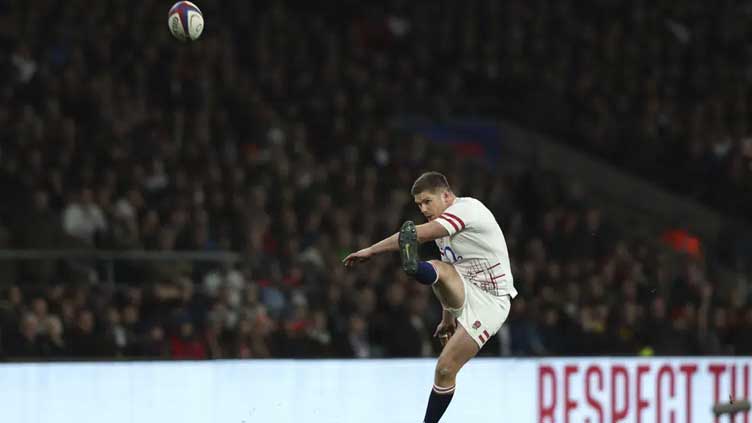World Rugby urges shot clock brought into major comps

Sports
World Rugby urges shot clock brought into major comps
DUBLIN (AP) — Major rugby competitions are urged to introduce a shot clock for goalkicks to help speed up the game.
New directives from World Rugby will be implemented from Jan. 1 to try and improve the international game as a spectacle ahead of the Rugby World Cup in France in September.
Most of the directives are already enshrined in the law book but World Rugby has warned players and told match officials to enforce them.
The measures include forming set-pieces without delay, time limits for goalkicks, less reliance on video reviews, fewer water carrier interventions, stricter action against negative player actions, and more leeway on knock ons.
They were highlighted during a conference in November in London attended by key stakeholders to address low ball-in-play time and the length of stoppages in men’s internationals.
A shot clock is already used in the French Top 14 and could come into play in Six Nations stadiums and broadcasts. Conversions must be kicked within 90 seconds of the try. Penalty kickers have 60 seconds from when they indicate a shot at goal. A scrum must be ready to form within 30 seconds of the mark. The times are rarely enforced.
“World Rugby, member unions and competitions will work with broadcasters and match hosts to implement on-screen (stadia and broadcast) shot clocks for penalties and conversions to ensure referees, players and fans can view the countdown, mirroring what happens in (French club rugby) and sevens,” World Rugby director of rugby Phil Davies said.
Referees and TMOs have been urged to make speedier decisions around replays and limit them to clear and obvious offenses.
The trial since July to reduce water carriers and their field entries was deemed a success, but was tightened even more by limiting their entries to when only tries are scored.
In the disputed area of deliberate knock ons, an opponent’s touch of the ball whether intentional or not has often been sanctioned by a yellow card. But World Rugby says if a player has a chance at a catchable ball and the knock on doesn’t look intentional then refs “are asked to show good judgement . . . in determining a sanction.”

